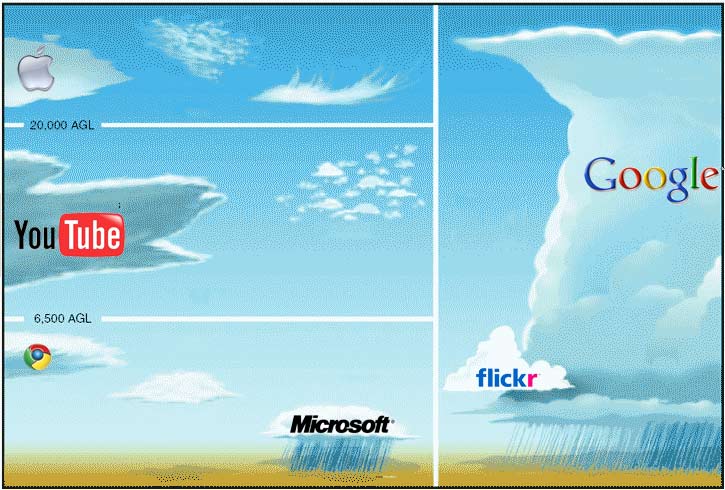
GNU creator Richard Stallman is back on the old “cloud computing is evil” kick again, and this time he’s speaking out against ChromeOS. His basic premise, that cloud computing is dangerous because it places your data in the hands of companies that neither care about you or your data, is sound. As is his threat that when the police come knocking on your cloud provider’s door asking for your data, Google is far more likely to give it up than you are. These are fine and good reactions to the slow erosion of privacy that comes from the rise of cloud computing.
“I think that marketers like cloud computing because it is devoid of substantive meaning. The term’s meaning is not substance, it’s an attitude: ‘Let any Tom, Dick and Harry hold your data, let any Tom, Dick and Harry do your computing for you (and control it).’ Perhaps the term ‘careless computing’ would suit it better.
To paraphrase Raymond Carver, Stallman is talking and Stallman invented GNU so sometimes that gives him the right. But I worry his FUD in regard to the cloud is misplaced. The obvious issues aside, given the current state of most people’s computer security and back-up practices, will not disregard the cloud as a good alternative to those who can’t maintain their own PCs. Stallman comes from a culture where everything is in one place. The Linux architecture itself is, to an extent, monolithic (not in the computing sense but in the metaphorical sense), and every action you perform on data within it is self-contained on the disk. Copies of copies are propagated through the network, ensuring that important data is replicated and not linked.
You would be a fool to trust your entire video or photo collection to Google or Yahoo or Microsoft, yet millions do. You would be a fool to trust your email records to a bunch of privileged uber-nerds in Palo Alto, but I, myself, do just that. These are compromises we make to create a centralized information jukebox and I, as a responsible computing citizen, keep copies of my important stuff locally.
However, ChromeOS, like many mobile phone OSes, isn’t about being a responsible computing citizen. It’s about getting things done. You put music on your phone or start up Pandora – it’s essentially the same thing. You edit a document in Pages or in Google Docs on the iPad – it’s essentially the same thing. You drag a photo off of your Droid or upload it onto Flickr – it’s essentially the same thing. The primary examples are the movement of bits from and to your own realm while the secondary examples are the movement of bits from and to a password protected “alien” realm. Either way, you’re doing the same thing with the same bits.
When it comes time for me to perform some sort of civil disobedience or when I get it into my head to do something illegal, I will keep that data off the cloud. But I do not consider sharing a photo on Posterous “careless computing.”
ChromeOS is Google’s way of showing us the desktop is dead. It’s also Google’s way of grabbing more eyeballs and insinuating itself into the fabric of our information age lives. None of this is done with any particular malice but it is definitely not done with our best interests at heart. However, for the vast majority of us, letting Google do the heavy lifting when it comes to data storage and maintenance is probably the best way to go.
The question is not whether I should trust Google or Microsoft or Apple with my data in the cloud. The question is, rather, whether it is worth my time, attention, and resources not to.